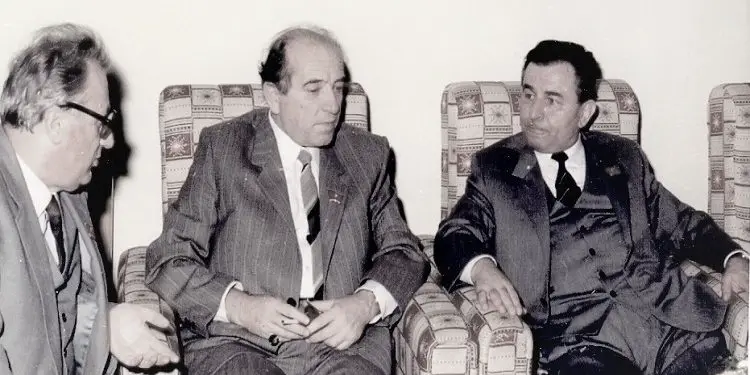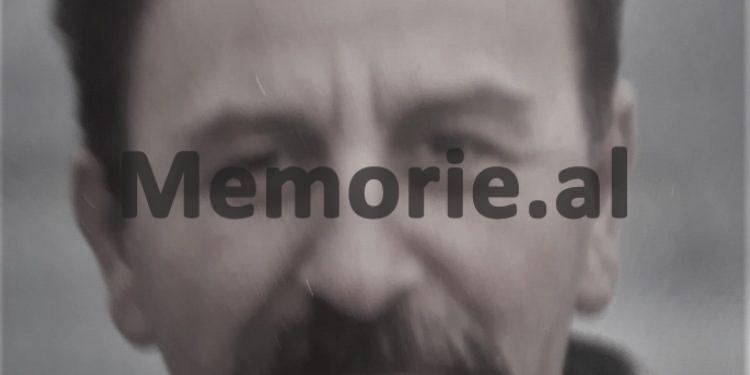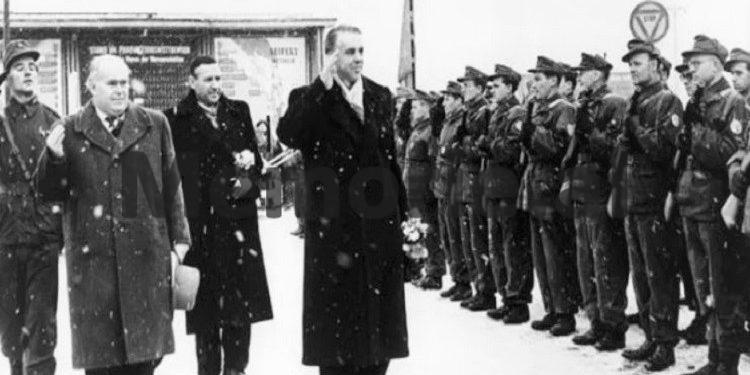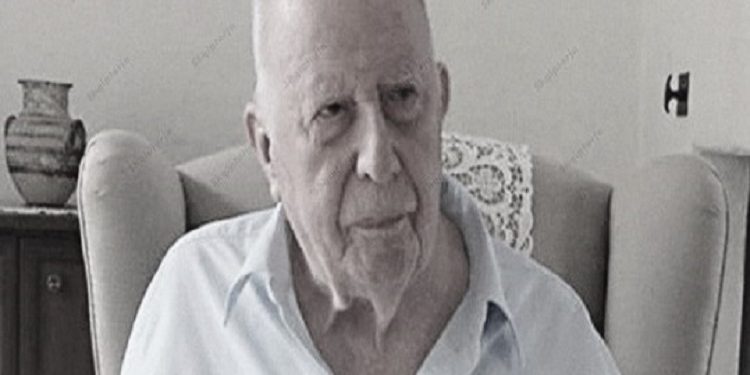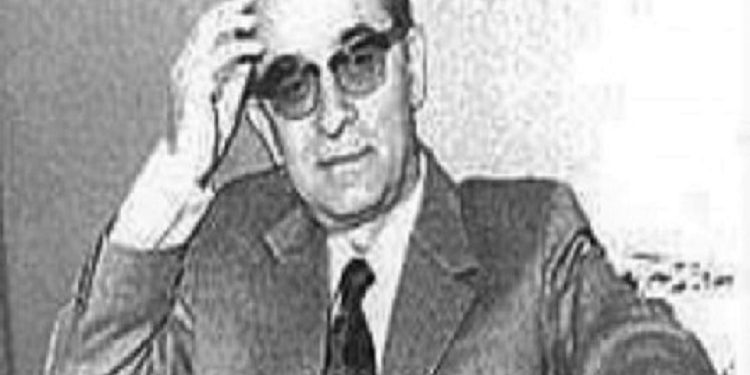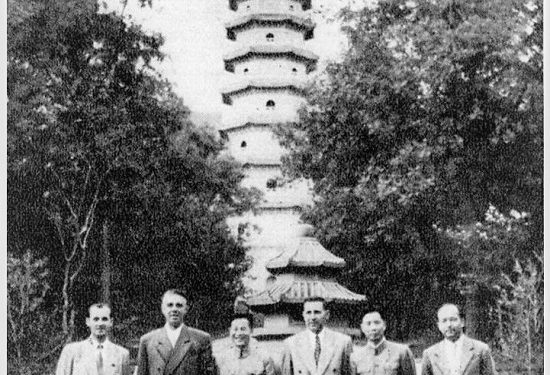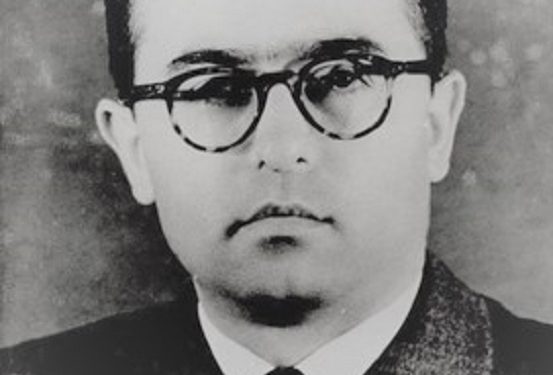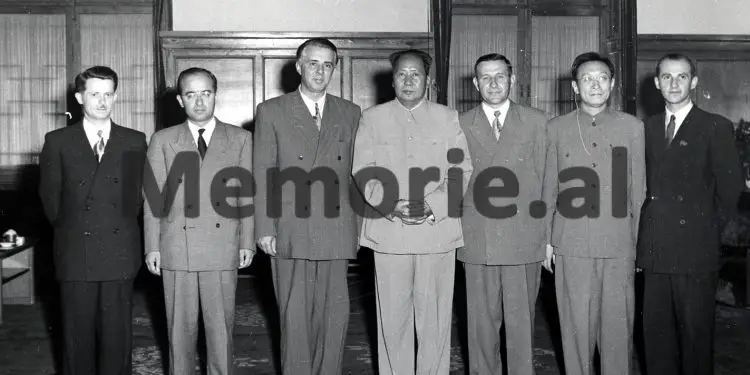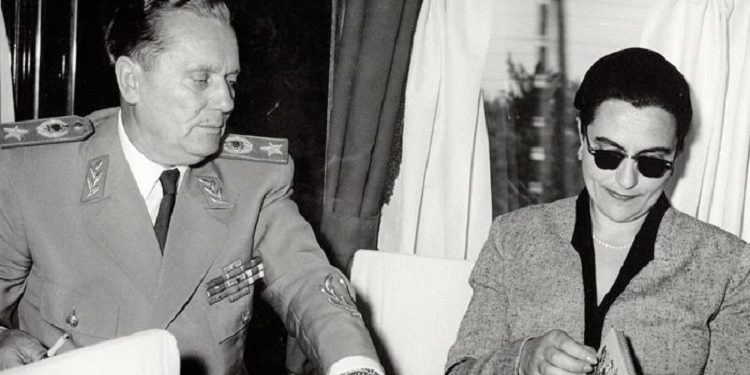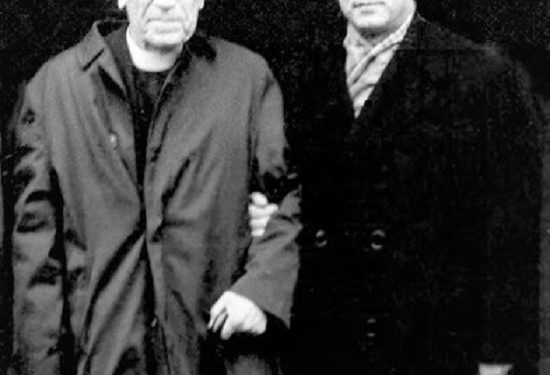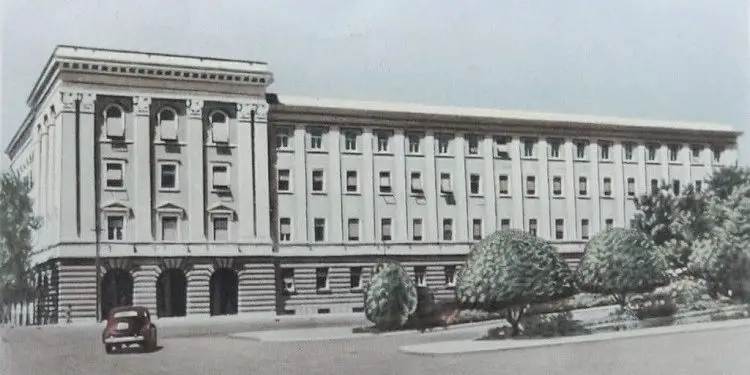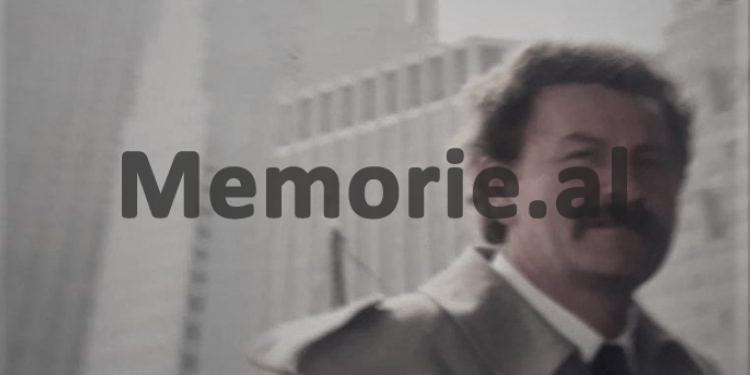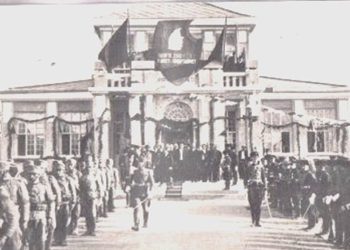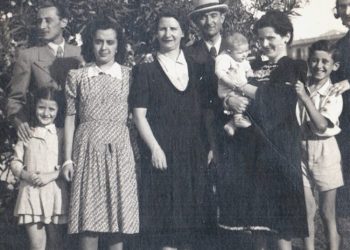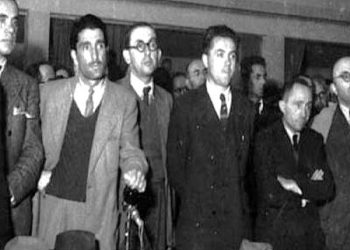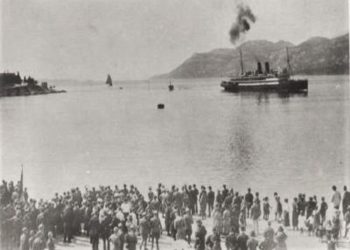By Bashkim Trenova
Part fifty-three
Memorie.al publishes the memoirs of the well-known journalist, publicist, translator, researcher, writer, playwright and diplomat, Bashkim Trenova, who after graduating from the Faculty of History and Philology of the State University of Tirana, in 1966 was appointed a journalist at Radio- Tirana in its Foreign Directorate, where he worked until 1975, when he was appointed journalist and head of the foreign editorial office of the newspaper ‘Zeri i Popullit’, a body of the Central Committee of the ALP. In the years 1984-1990, he served as chairman of the Publishing Branch in the General Directorate of State Archives and after the first free elections in Albania, in March 1991, he was appointed to the newspaper ‘Rilindja Demokratike’, initially as deputy / editor-in-chief and then its editor-in-chief, until 1994, when he was appointed to the Ministry of Foreign Affairs with the position of Press Director and spokesperson of that ministry. In 1997, Trenova was appointed Ambassador of Albania to the Kingdom of Belgium and to the Grand Duchy of Luxembourg. Unknown memories of Mr. Trenova, starting from the War period, his childhood, college years, professional career as a journalist and researcher at Radio Tirana, the newspaper ‘Zeri i Popullit’ and the Central State Archive, where he served until the fall of the communist regime of Enver Hoxha, a period of time when he in different circumstances met many of his colleagues, suckers of some of the ‘reactionary families’, etc., whom he described with a rare skill in a book of memoirs published in 2012, entitled ‘Enemies of the people’ and now brings them to the readers of Memorie.al
Continued from the previous issue
WITH “HEROES OF THE PEOPLE”
POLITICAL BUREAU AND THE PRESIDENCY
Even Nexhmije Hoxha himself, the widow of the dictator or Ramiz Alia, the successor of the ruling dictator, have made some feudal criticism or self-criticism about the dictatorial regime of the proletariat and any special, not important, aspect of their activity. Nexhmije Hoxha, for example, expressed her regret because she had not read the plays written by former Central Committee member Fadil Paçrami, while he was condemned as an enemy of the Party by her husband, Enver Hoxha, herself and their yard! Ramiz Alia, on his part, more theoretically, stated: “We build by experimenting, we build by making mistakes, and we build by correcting … it would be wrong to think that everything we do we do well. It would be an unacceptable arrogance. ”
Sofo Lazri until the end of his life remains a cheater and a champion of cheating. With his services to dictatorship and dictator, he has his share of responsibility for the many and incalculable traumas that communism caused to the people of the country. Democracy did not condemn him. Those he called ballists and collaborationists, defeated, did not behave like ruthless victors with him. He was simply left to die alone after completing his “historic” mission!
Sofon is also said in the Albanian press to have been the head of the Soviet secret services in Albania. I can neither affirm nor deny this. It is known that the Soviet “comrades” have recruited many as collaborators of their secret services among foreign students, who continued their studies at their universities. Despite this fact, I am of the opinion that, as I have read somewhere, the best agent is the one who does the services without knowing that he is an agent. One thing, however, is certain; Sofo has done a lot of bad services to Albania. On the other hand, if we believe that he was in the service of the KGB, we can understand perhaps one of the reasons why he was so allergic to me. My articles in “Voice of the People” hit, I believe more diligently and more persistently than those of my colleagues, the KGB bosses in the Kremlin, their domestic and foreign policy.
How did I meet the former Minister of Foreign Affairs, Behar Shtylla!
Another member of the Central Committee with whom I met and talked is Behar Shtylla, the former Minister of Foreign Affairs of Albania. He is the Foreign Minister, who stayed longer than anyone else in this post. Behari is also known as the “Kissinger of Albanian diplomacy”. I met with him after he left this post and, if I am not mistaken, he was the Director of the Foreign Relations Directorate at the Central Committee of the Party, as it were at the Party Foreign Ministry, which also headed the government Foreign Ministry.
During the days of Soviet aggression against Czechoslovakia in 1968, the work of the Eastern Bureau, as the Foreign Radio bureau was called, preparing programs for the countries of the former Eastern European bloc, focused on its unmasking. After several broadcasts, Behar Shtylla arrived at our Directorate. Our bosses told us to gather in one of the Radio studios where we usually did both forms of political education as well as meetings of the youth organization. Behar Shtylla had read some of our comments and expressed some appreciation about them. His name was heard by all of us. Being, almost without exception, young journalists, we were impressed by the words, the way he expressed his thoughts, why not even his ingenuity or wisdom. Among the articles he said kind words about, was one written by me. I certainly rejoiced, especially since those words came from someone who was the Head of Foreign Affairs at the Central Committee. We knew him, or rather felt the weight of his words.
By that time my relationship with the Radio bosses had started to strain. I also found Behar Shtylla’s words as a support, which I could count on in the confrontations with them. Of course I went far with my imagination. My colleague and friend Dervish Dumi, feeding the same illusions, thought to seize the opportunity and raise a series of problems. He severely criticized the way our bosses and our director Kiço Pandeli run the work, emphasizing, in particular, their incompetence. Behar Shtylla, as a career diplomat, did not speak at all, and even found a way to close the problems. Of course he had to. He had not come to judge us or our bosses. We had to wash our unwashed clothes ourselves. He had come for a certain problem and stood alone in that problem. Behar Shtylla knew his boundaries and respected these boundaries.
Behar Shtylla had spoken well of me, his friend, Myslym Peza!
Even in the following years, when I worked in the Foreign Sector of “Voice of the People”, Behar Shtylla spoke several times positively about the articles written by me. He had a friendly relationship with Myslym Peza. They had worked together for several years in the Presidency of the People’s Assembly. In some cases Baba Myslymi has repeated to me that: “my friends have spoken well of you”. When he wanted to concretize his “friends”, he almost always mentioned the name of Behar Shtylla to me. Even in the editorial office of “Voice of the People”, in some cases, Behar Shtylla congratulated me for special articles. This thing, as once in Radio Tirana, could not but enjoy me, especially when for the same article, Sofokli Lazri expressed his completely opposite opinion, contemptuous and denigrating.
I met Behar Shtylla for the second time during the years when I worked in “Zeri i Popullit”. From the Press Directorate of the Central Committee of the Party, I was tasked to prepare a material on foreign propaganda, namely how the foreign policy problems in the Albanian press and Radio Television were treated and how their dynamics should be seen in perspective. On this occasion I was instructed to withdraw the opinion of Behar Shtylla and Sofokli Lazri, both specialists in international affairs, one at the Directorate of Foreign Relations of the Central Committee and the other as an adviser to the dictator on these issues and the Director of the Institute of the Study of International Relations. After receiving prior contact with them, I set out on the appointed day and met them separately, each in his own office on the Central Committee of the Party.
The conversation with Behar Shtyllën was simple, as between friends, even though we were neither friends nor friends. Confident in his thoughts and without complications, he said what he had to say. For a moment, it did not imply how valuable this meeting was to me and that without it I would be lost. The meeting with Sofo Lazri took place in a completely different way. With half-hearted, bloated and pretentious thoughts he wanted to show that it was he and only he who knew the problem. His help was in the words: “You have to study. “I do this before I prepare a material.” Sofo did not hesitate to accompany these words with her hand outstretched in the direction of a small old-fashioned shelf next to his desk. I do not know if the floor was always the way I saw it at the time, or if the look was casual, not ordinary. In fact, there was no book in it, whether it was placed there as a decoration or as a false witness who “proves” how much a scholar the master of the nearby table was!
The third meeting with Behar Shtyllë took place at the end of 1980 at the Albanian Embassy in Paris. I was at the time with the artists of the State Ensemble of Folk Songs and Dances on a one-month tour in France. One evening, at the end of the tour, Ambassador Misto Treska, a charming and humorous man, very popular, gave a reception for the artists of the Ensemble. Behar Shtylla, who once, in the years 1950-1952, had been the ambassador of Albania in France, was also present at the reception. In 1953 he was appointed Minister of Foreign Affairs, replacing the dictator Enver Hoxha, who until this time, in addition to the post of Prime Minister, was also the head of this Ministry.
Behar Shtylla congratulated the Song and Dance Ensemble during the tour in France
Behari congratulated the Ensemble for the success with general words, as if doing a rite forced by the circumstances. From what he said that evening, I remember the words he said about Vace Zela. Vaçja was, without any guess, the greatest Albanian singer of the time. It opened a new era for Albanian song, penetrated and took place for several decades in the hearts of Albanians, who worshiped her as the goddess of song. She, wherever we went, with her voice, interpretation and passion electrified even the French spectator, thus making our isolated country the greatest service, distributing and gaining love. In the studio of Radio Lyon where we were invited to one of the first days of our stay in France, I saw one of her employees shed tears, when she heard performed by Vaçja “Songs of my country”, the well-known composer Agim Krajka. No ambassador, no body of Albanian ambassadors could do, in the conditions of the time, what the artists of the Ensemble did, what Vaçe Zela did. I also adored Vaca as a singer. During the tour I asked others for a cigarette, ostensibly for myself, actually for Vaca. She had not taken packages with her from Albania, as others had done, because she wanted to quit smoking. To buy a pack of cigarettes in the French market was out of the question. I, as the saying goes, made the page sole for it.
With Vaca, however, it was not always easy to cooperate. She too was infected by the small whims of great artists. One day he says that he did not have to sing in all the scenes of France. Claude, our French companion, reminded us on this occasion that we had concluded a contract and that we had to respect the contract. I was presenting the show program. One evening Vaçja tells me that she would not sing, so I should not present her song to the public – “With beautiful flowers”. The leaders of the Ensemble, among them the prominent composer, the respected and the late Tish Daija, tell me to present on stage to the public the song of Vaca, which, as Tishi told me, she had chosen herself. I did, but Vacja did not come out to sing. To fill the “space” that was created on this occasion, the ensemble choir came on stage. The laughter in the hall was not lacking. Of course we did not all feel well and, in one way or another, we told this to Vaca as well.
Behar Shtylla defended Vaçe Zela, when she refused to sing even after her name was presented on stage!
Dissatisfaction, it seems, had reached Behar Shtylla as well. In his conversation, staying with Vaçja, he openly said that such artists, with values that spend their time, should be accepted something that does not go, that does not strictly respect the general discipline, etc., etc. I think he was right. The logic was simple. Better with the great Vaca in 20 scenes of France and its absence in two or three scenes, than without him in all these scenes. Behari showed in this way, in my opinion, that he was not only a smart diplomat even outside of diplomacy, but that he was a highly tolerant employee like very few others in the party and state pyramid of Albanian communism. Officially, as happened in similar cases, Vacja would have to answer before the collective before the Party for refusing to sing in all the scenes of France. She even had to be punished by excluding her, for example, from being part of the artistic troupe on a future overseas tour.
This was the practice of the time. This is how they behaved, for example, with the deserved artist Naile Hoxha, a well-known performer of the Shkodra civic folk song. I saw her own sadness when she was left off the bus, with which we were going to travel to France. Fortunately for Vaca, the gloomy bells of the Albanian Kremlin never dared to ring. She remained intact as she was, with her unrepeatable talent, with her powerful song, with the colors of her crystal clear voice, with the qualities and shortcomings of the common man even though she was a diva of the scene. I went here for a while for Vaçe Zela, believing that I am fulfilling a debt to her in this way, even though she has not declared me a “debtor”. I have written several times about the celebration of the anniversary of the great actor of the Albanian stage and screen, Kadri Roshi, at the National Theater. When I came down from the stage, after greeting Kadri Roshin, I was in the hall at one point near Vace Zela. “I do not know if anyone will say such words to me when I retire,” she told me. I did not say anything to her that day. Later I felt that she, the pantheon of our song, was probably expecting some words from me, just as I did for Kadri Roshin. I know that for years she lives in Switzerland next to her daughter, stuck in a wheelchair. If he ever has the opportunity to read these lines, he will probably remember those times when they filled him with glory, maybe his eyes will fill with tears as they fill them as soon as they remember Albania and “Songs of my country”
Last meeting with Behar Shtyllë at his house in Tirana!
I made the last meeting with Behar Shtylla after about 13 or 14 years. After the overthrow of communism I paid a visit to his house. The cause was Mahmut Jakubi, the Albanian imam of Munich. I met him by chance during a visit to Skopje. More precisely, it was Armand Shkullaku, one of the pioneers of the “Democratic Renaissance”, and another colleague of ours, those who had met him in the neighborhood of the Skopje castle, which is inhabited by Albanians. They introduced me to Mahmut Jakub. One day he arrives in Tirana, comes to the editorial office of “Democratic Renaissance” and tells me that he wanted to meet Behar Shtyllën. It seems to me that a nephew of Behar, who lived in Munich, had asked him to meet with him. So, together with Mahmut Jakubi, we knocked on the door of Behar Shtylla’s small and beautiful house. I do not remember who opened the door for us. It seems to me that he was the son. I introduced myself; I also told him the reason for the visit. Behari, happy, welcomed us immediately. He was the same one I remembered 30 years ago, even 20 years ago, the same look, the same portrait, the same half-dark halves, the same light smile that seemed to slide over his lips, the same way of talking caring and friendly. Since the imam did not drink alcohol, Mrs. Shtylla took us out of a small glass of glyco. We also drink coffee.
Imam Jakupi spoke about his nephew who lived in Munich. He also asked us a question or a proposal that, to me at least, found me unprepared. “Would you like,” asked Mahmut Jakubi, to do together a series of topics about Albania in Saudi Arabia? It would be very interesting to make Albania known in that country “. I waited for Behar Pillar’s reaction. He expressed himself fully ready. This trip was never realized. Mahmut Jakubi, I believe, had good wishes. He probably chose us, given our Muslim background, which would probably be required of him by the Saudi hosts. Mahmut Jakubi, however, I think did not weigh everything well, our communist past, Behari as former Foreign Minister of the atheist communist dictatorship and I as former head of the Foreign Sector of the “Voice of the People”, a body of the Central Committee of the Party, which with the Constitution declared the Albanian state as the only atheist state in the world. I met Mahmut Jakubi after many years in Brussels. We have a coffee together at the Hilton Hotel. I did not ask why the trip with Behar Pillar to Saudi Arabia did not take place. It was another time. Milosevic threatened Kosovo with war.
I would like to see Behar Shtylla speak again on a podium outside Albania. It seems to me that I also understood his willingness to talk about Albania in Saudi Arabia. He had spent a good part of his active life lecturing in the tribunes of international forums, at United Nations sessions and elsewhere. There were years, over a decade, that this life was missing. The dictatorship had practically “forgotten” him at his villa even though no official action had been taken against him. I think that the dictator did not forgive Behar Shtylla, the fact that he refused to serve him blindly in the intrigues he plotted against the then Prime Minister Mehmet Shehu.
Former Albanian Prime Minister Mehmet Shehu is known to have been declared by the dictator as a super-agent of many powers. To prove this, Enver Hoxha brought as a “fact” a non-existent fact or a half-fact. Mehmet Shehu had traveled in 1960 with the transatlantic “Queen Elizabeth” to participate in the XV Session of the United Nations Assembly, which would be held in New York in September and the first half of October of that year. The team of the Albanian delegation led by Mehmet Shehu also included Behar Shtylla, who at that time was the Minister of Foreign Affairs.
Enver Hoxha says that during the voyage on the transoceanic “Queen Elizabeth”, Shehu met with the leader of Yugoslavia Josif Broz Tito, who was actually on that ship, but also with Randolf Churchill, Churchill’s son and CIA agents. Enver Hoxha, for sure, has asked after 20 years from this trip, right after the murder or suicide of Mehmet Shehu, for Behar Shtylla to testify in favor of his version of events. This would prove that Mehmet Shehu had been an early agent, super dangerous agent, poly agent, etc.
Conversation with Agim Popa, who told me about Mehmet Shehu’s “meeting” with Tito!
In September 2009, I met with Professor Agim Popa, in what is known as the Blloku area in Tirana. Agim Popa has been the editor-in-chief of “Zeri të popullit” for several years. He has proposed my candidacy for head of the Foreign Sector of this newspaper. Our meeting took place after a lack of communication for many years. We drank coffee together and talked about times gone by. Taking advantage of the character of the conversation, I told Agim Popa: “You have a very rich life. Why not write down your memories? ” Professor Popa told me that he was writing them, but he did not know if he would be able to finish them or not, that is, if he would live until they were finished. He, as far as I was concerned, had this concern in vain. Dawn enjoyed full health and a clear mind.
Continuing the conversation, to quench my curiosity, Agim Popa also told me about Behar Shtylla and Mehmet Shehu’s trip with the British transoceanic “Queen Elizabeth”. He himself has been in the role of Mehmet Shehu’s translator on this trip. From the conversation with him I conclude that Behar Shtylla, in essence, has refused to support Enver Hoxha’s version. According to Agim Popa, Behar Shtylla gave his version, which did not match that of Enver Hoxha. It follows from his story that the former Minister of Foreign Affairs, Behar Shtylla, admitted that Churchill’s son had asked to meet with Mehmet Shehu. Behari also said that he himself had refused this meeting. Agim Popa, for his part, says that such a meeting, in fact, did not take place, but that it was rejected by Mehmet Shehu, while Behar Shtylla and he from a telephone booth, only transmitted this attitude to Churchill’s son.
It does not matter to me whether it was Behar Shtylla or Prime Minister Mehmet Shehu who refused to meet Churchill’s son, Randolf Churchill. The dictator knew well the truth, the fact that no meeting was made by the Albanian Prime Minister during the trip with “Queen Elizabeth”. Behar Shtylla, saying that he had refused the meeting with Randolf Churchill, claimed that this meeting had not taken place. This is the essential. This has angered Enver Hoxha. As for Behar Shtylla, confessing his version and insisting on this version, he has shown ingenuity and honesty. Firstly he has acquitted the former prime minister of a false accusation and thus has been calm with his conscience; secondly he has even defended himself. Behari on this trip had stayed in the same cabin with Prime Minister Shehu. That was enough to weave a police novel with agents and super agents. Had he accepted the dictator’s version, he would surely have been accused of being an accomplice of the prime minister and punished mercilessly as such. Behar Shtylla was also shown in this case a worthy diplomat, a personality who knows how to respect the truth and himself, despite the price I have to pay. Thankfully the price for it was not tragic. He just left the important task he had and was “forgotten” as non-existent. /Memorie.al
The next issue follows




